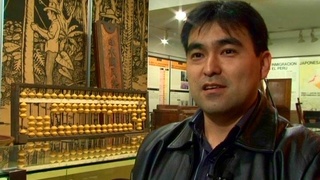Interviews
The political effects on Nikkei during the war (Spanish)
(Spanish) With regard to Chile, during the war, or immediately afterwards, it wasn’t very…how can I say this…pleasant for Nikkei. Even though the Chilean people never took any action against us, still there were of course political differences, due to the fact that Chile declared war against Japan, for example. But at that time, in the post-war period, at least insofar as I experienced it, I believe it was a time of Japan’s growth onto the world’s stage, don’t you think? From an economic standpoint, its culture generally became better known. And because of that, it was probably a more favorable time for us as Nikkei. In other words, it was good to be Nikkei. Like they say in Japan, right, “haku ga tsuku.” Meaning there were certain advantages, or maybe a certain respect, towards Nikkei, towards Japanese.
Date: October 7, 2005
Location: California, US
Interviewer: Ann Kaneko
Contributed by: Watase Media Arts Center, Japanese American National Museum







